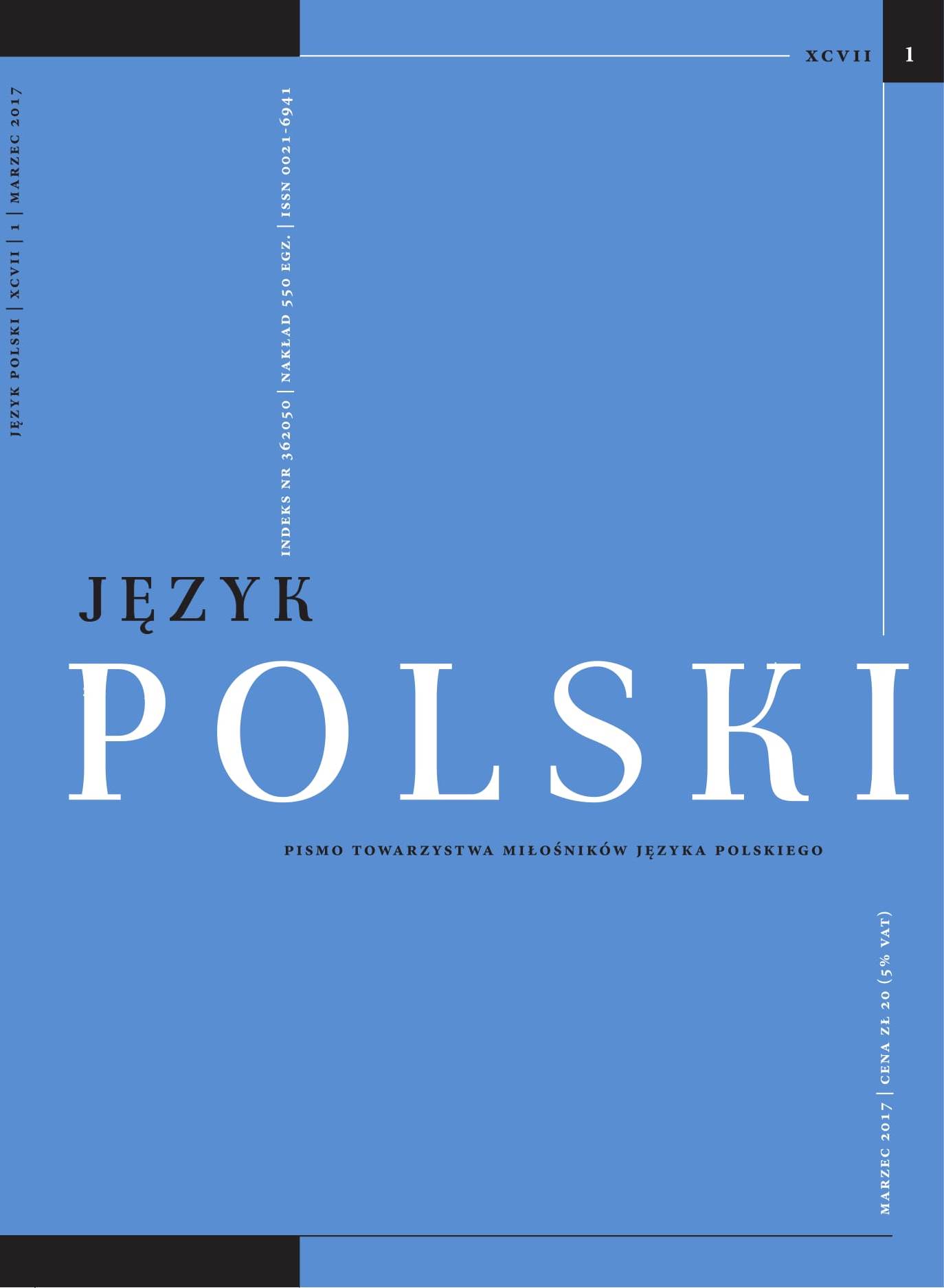Rodzaje motywacji metonimicznej eufemizmów polskich
Types of metonymic motivation in Polish euphemisms
Author(s): Marcin KuczokSubject(s): Language and Literature Studies, Theoretical Linguistics, Applied Linguistics
Published by: Towarzystwo Miłośników Języka Polskiego
Keywords: euphemism; formal metonymy; referential metonymy; propositional metonymy; illocutionary metonymy
Summary/Abstract: The article aims at presenting the metonymic motivation behind euphemisms in the Polish language.Euphemisms are used by speakers as tools for coping with the negatively charged sphere of taboo that ispresent in culture. They allow both the speaker and the hearer to save their faces, and to follow the principlesof politeness in language. The study is based on works in the field of cognitive linguistics, in which metonymyis perceived as a cognitive mechanism that is conceptual in nature. Among the analyzed examples fourgroups of Polish euphemisms are distinguished, according to the four types of metonymy motivating theircreation: formal metonymy, referential metonymy, propositional metonymy, and illocutionary metonymy.
Journal: Język Polski
- Issue Year: 2017
- Issue No: 1
- Page Range: 107-117
- Page Count: 11
- Language: Polish

